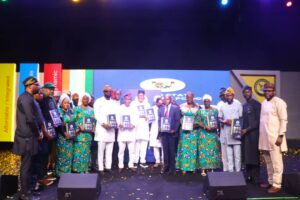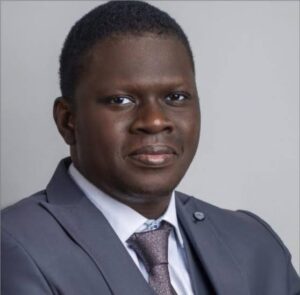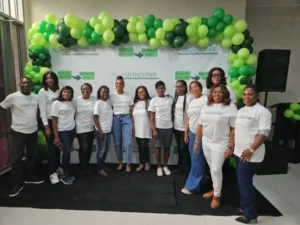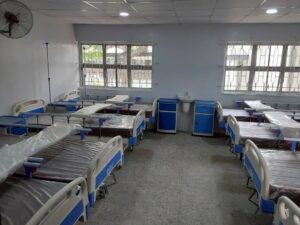
By Lilian U. Okoro
The Chief Medical Director, Federal Neuro-psychiatric Hospital Yaba, Dr Olugbenga Owoeye, has lauded President Bola Tinubu Administration for its infrastructure interventions, which have enhanced mental health service delivery at the hospital.
Owoeye spoke with the News Agency of Nigeria (NAN), on Tuesday in Lagos while appraising Tinubu’s one year in office.
He said there had been some major landmark achievements and positive impact recorded at the hospital in the past one year of the current administration.
He explained that the achievements were majorly in the area of manpower development, infrastructure equipment and services.
Owoeye said that the hospital had rehabilitated a 60-bed premium ward with all the needed equipment.
He added that the hospital’s sleep laboratory and sleep disorder treatment centre had also been reactivated and equiped, which was the first of its kind in Federal Neuro-psychiatric Hospitals in Nigeria and the only one in government health institutions in Lagos.
According to him, the administrative building of the hospital has also been renovated and modernised to create a conducive atmosphere for the smooth running and operation of the hospital.
“In the past one year of the current administration of President Tinubu, the Federal Government has really focused attention on us in the area of infrastructural development.
“For example, the rehabilitation of a 60 bed premium ward with all the equipment; that’s a major achievement because the place now make it conducive for patient’s treatment and also for the workers to work in a conducive environment.
“Similarly, the sleep laboratory and sleep disorder treatment centre has been reactivated, equipped and being managed by a trained consultant specialised in that field.
“The hospital’s Intensive Care Unit (ICU) and surgical centre have also been put to operation; though, this was equipped for us during COVID-19 period, but we have been able to activate it for use within the past one year.
“And finally, we now have our own laundry unit fully functioning.
“All these are major landmarks achieved in the last one year alongside other ongoing projects. So, the current administration has really enhanced our service delivery by making funds available for effective operation of the hospital,” Owoeye said.
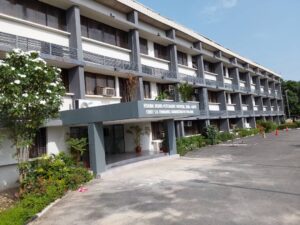
In the area of manpower development, Owoeye said that the hospital, through the help of government’s given approval, recruited a total of 86 clinical staff, consisting of consultants doctors, resident doctors and nurses.
He noted that all the trainees (doctors and nurses) of the hospital made 100 per cent success in their qualifying professional exams like the West Africa College of Physician, Post Graduate Medical College of Nigeria and alike.
He, however, said there was need for more support to further enhance performance of the hospital, calling on the Federal Government for subsequent financial supports.
According to him, some buildings in the hospitals are old and need to either be renovated or rebuilt, saying that the Federal Government stepping forward to rebuild the structures will be a welcome development.
Owoeye said that the existing 90-bed drug rehabilitation centre of the hospital was grossly inadequate and needed to be expanded.
“To sustain development of the hospital and further enhance its operations, there is need for more support.
“Some of the buildings are old and there is need to either remove them and rebuild or renovate. This will also improve on the hospital’s mental health care services
“There is also need for expansion of our drug rehabilitation centre; we have 90 bed drug rehabilitation center for both male and female, and as at now, the facility is overstretched.
“So, a purpose built drug rehabilitation centre by the government, will be a welcome development,” Owoeye said.
NAN reports that the hospital was established in 1907 as an Asylum, and has over the years evolved to become centre of excellence in mental health services, research and training.
Edited by Vivian Ihechu




